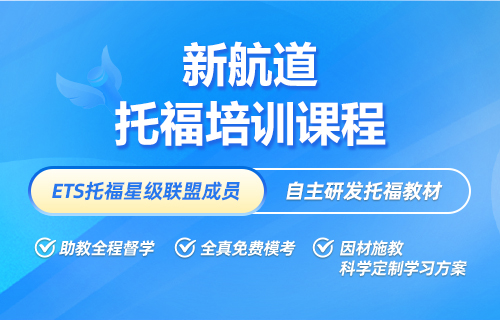当前位置:首页 > 托福频道 > 托福写作 > 支招托福作文 | 学术讨论范文
发布时间:2024-11-25 关键词:托福作文
摘要:Your professor is teaching a class on sociology. Write a post responding to the professor’s question.
Question
Your professor is teaching a class on sociology. Write a post responding to the professor’s question.
In your response, you should do the following:
-Make a contribution to the discussion in your own
-An effective response will contain at least 100 words.
Doctor Achebe
Some argue that factories, as major producers of pollution and waste, should be pushed to make dramatic changes in how they operate in order to protect and preserve the environment. Others contend that it is the small, cumulative actions of individuals that lead to the greatest impact, so public awareness and altered societal norms are most critical. I would like you to consider: who do you believe should make more efforts when it comes to environmental protection - factories or individuals?

Andrew
Factories should take the lead on protecting the environment because their impact is massive compared to individuals. For example, a single factory can generate tons of pollution per day, dwarfing what one person produces in a lifetime. Strict regulations and greener technologies for manufacturers would lead to huge reductions in emissions and waste.
Claire
Individuals should lead on environmental protection because we can drive cultural change. By making green lifestyle choices - reducing energy, taking public transit, minimizing waste - we set an example and normalize sustainability. And by purchasing eco-products and ethical companies, everyday consumer decisions incentivize businesses to follow suit.
范文正文
For me, individuals should make greater efforts toward environmental protection. Just like Claire said, by making eco-friendly purchasing choices and normalizing sustainable practices,【介词短语】individuals can be instrumental in encouraging businesses to adopt similar approaches. In other words, these companies and their collaborating factories are likely to adjust their strategies to cater to consumer demands, thereby taking a more active role in environmental preservation.【分词短语】For example, Millennials and Gen Z consumers increasingly prioritize corporate social responsibility and are willing to pay a premium for environmentally friendly products. To meet these expectations, companies like Starbucks have launched initiatives to eliminate plastic straws globally, replacing them with strawless, recyclable lids. Additionally, Starbucks is working with eco-packaging plants to develop compostable paper cups. This reduces reliance on traditional plastic-lined options. Likewise, growing environmental awareness has driven consumer interest in clean energy vehicles without compromising performance or convenience. In response, Tesla has introduced an affordable range of electric vehicles that combine extended battery range with exceptional performance.【定语从句】Obviously, this market demand continuously motivates Tesla’s factories to refine battery technology and automated driving systems, informed by user feedback. To conclude, individuals, by championing sustainability efforts and taking the lead in inspiring businesses and factories to innovate, should act as catalysts for meaningful change, paving the way toward a greener future.【介词短语+分词短语】
写作思路和特色
这道题是2024年4月13日托福学术讨论写作真题。同时,这也是托福考试反复出现的学术讨论写作题目之一,出现在2023年12月17日。在这道有关环保话题的个人偏好类题目中,教授提问:谁应该在环保中做出更多努力,工厂还是个人?Andrew认为应该是工厂,因为与个人相比,工厂的影响更大,可以显著减少排放和废弃物;Claire则认为是个人,她的理由是通过日常选择环保的、可持续的生活方式和消费决策,个人能够起到激励企业转型的积极作用。
这篇文章采用了“个人观点+因果论证+举例论证+总结”的写作结构,围绕着个人在推动环境保护中的关键作用展开。文章首先回应了其中一位同学Claire的观点并指出,个人通过选择环保产品和可持续行为,能够在一定程度上促使企业采取类似的环保措施。接着,文章举了多个企业案例来论证这一观点,说明消费者,特别是千禧一代和Z世代,更倾向于关注企业的社会责任,并愿意为环保产品支付溢价,从而驱动企业调整策略。例如,星巴克为了回应消费者的环保需求,推出免吸管杯盖的环保举措,并与环保包装厂合作开发可降解的纸杯,以减少塑料使用。此外,文章还提到特斯拉响应市场需求,推出兼具长续航和卓越性能的电动汽车,以满足消费者对清洁能源汽车的兴趣。这些案例表明,企业在消费者需求的驱动下,不断驱动企业在环保领域的创新和技术进步。最后,文章总结并回应题目:个人在推动环保方面应当发挥更大的作用,通过选择环保产品和支持可持续发展的企业,成为变革的催化剂,促进更加绿色的未来。
文章开篇直接表明观点,中间以两个详实的案例支撑核心论点,结尾回归主题,重申个人应该担当起环保责任。整体来说,文章简洁明了,逻辑清晰,通过因果关系和举例分析的方式,逐步展开,层层递进,使得论点更加有力,容易理解。
用词用语整理
【介词短语+分词短语】
“To conclude, individuals, by championing sustainability efforts and taking the lead in inspiring businesses and factories to innovate, should act as catalysts for meaningful change, paving the way toward a greener future.” 这句话在文章中起总结和升华主题的作用,通过强调个人在推动可持续发展和激励企业创新中的核心角色,呼应开头观点并展望未来,进一步凸显全文的主旨。其中,介词短语和分词短语分别从明确行动路径和补充句子结果两个层面,使句子内容更加具体和完整。
instrumental(起重要作用的,有帮助的):常用于表达某人或某事物在达成目标、完成任务或实现某种结果时起到了关键作用。通常与in搭配使用,后接名词或名词短语。在文章中通过强调个人在推动企业环保转型中的关键性和促进作用,凸显了个人行动的重要性,强化了文章关于个体对环境保护影响力的核心论点。
例句:The government was instrumental in providing the funding for the research.政府在为这项研究提供资金方面起到了关键作用。
cater to(迎合,满足):动词短语,常见于商业服务、客户需求、个人兴趣等场合,表示为某些特定的人群或需求提供服务、产品或满足他们的要求。在文章中用来描述企业为满足消费者需求而调整策略的行为,突出了消费者偏好对企业环保实践的驱动力,从而加强了个人行动能够影响企业行为的论证。
例句:Many social media platforms cater to younger audiences with trendy features and updates.许多社交媒体平台通过时尚的功能和更新来迎合年轻观众。
prioritize(优先考虑):通常用于描述在多项任务或事项中,选择首先考虑最重要、最紧急或最有价值的部分,给予某事物更高的优先级。
例句:The company has decided to prioritize customer satisfaction over short-term profits.公司决定优先考虑客户满意度,而不是短期利润。
pay a premium(愿意多花钱购买):表示支付额外费用、溢价或更高的价格,通常是为了获得更高质量的产品或服务,或者因为某物稀缺且需求高。在文章中强调了消费者愿意为环保产品支付溢价的行为,突出环保意识对市场需求的推动作用,支持了个人选择对企业实施可持续发展措施的积极影响。
例句:Consumers are willing to pay a premium for organic food because they believe it is healthier and safer.消费者愿意多花钱购买有机食品,因为他们认为这种食品更健康、更安全。
initiatives(计划,措施):常用来指为实现某个目标而提出或开始的行动、策略、倡议或方案。这个词在机构、社区或政府的语境中经常出现,在文章中指代星巴克为响应环保需求而采取的具体行动。
例句:This company has introduced new initiatives to support employee mental health and well-being.这家公司推出了新的计划,以支持员工的心理健康和福祉。
compromising(放弃,降低标准):指为了达成某种目标或结果,做出超出理想范围的妥协,通常带有一些负面的含义,比如放弃了原有的高标准或原则。在文章中用来描述消费者对清洁能源汽车的需求,强调在追求环保的同时,依然可以保持高性能和便利性,突出了环保与实用性之间的平衡。
例句:The company refused to compromise on quality, even if it meant higher costs.这家公司拒绝在质量上降低标准,即使这意味着更高的成本。
championing(支持,声援):词类活用,champion作动词时,表示为...而奋斗、支持或捍卫某个事业、信念或目标,常见于正式或较为积极的语境,尤其是在谈论社会、政治、环境等方面的支持行动时,带有积极、热情的语气。
例句:She has been championing the rights of underprivileged children for years.她多年来一直在为弱势儿童的权益而奋斗。
catalysts(催化剂,促进因素):在化学中,催化剂指的是一种能够加速化学反应的物质。而在更广泛的意义上,它可以指任何引发、推动或加速某种变化或过程的因素或事件。在文章中用来比喻个人作为推动环保变革的关键力量,强调个人行为能够激发和加速企业和社会在可持续发展方面的创新与行动。
例句:The new policy acted as a catalyst for change, sparking improvements in the education system.这项策起到了催化剂的作用,激发了教育系统的改进。
paving the way(为……作准备):表示为某件事的发生或实现铺平道路,或为未来的行动做准备。通常指采取一些行动或创造条件,使某事变得更容易或更可能实现。在文章中突出个人行动对推动长远环保目标实现的积极作用。
例句:The invention of the steam engine paved the way for the Industrial Revolution.蒸汽机的发明为工业革命铺平了道路。
新航道-用心用情用力做教育!
400-892-8866

